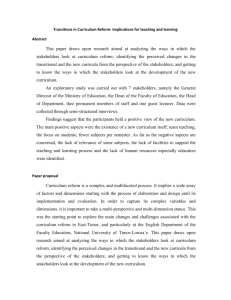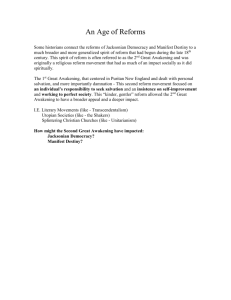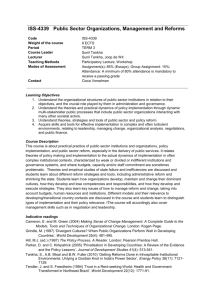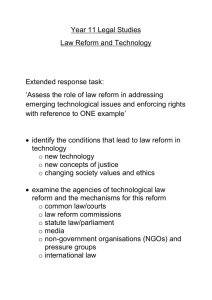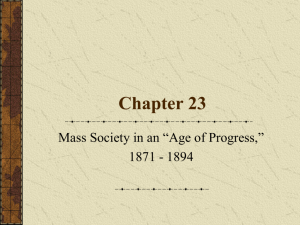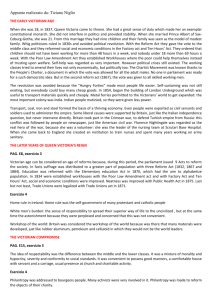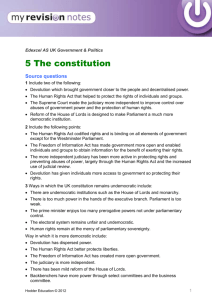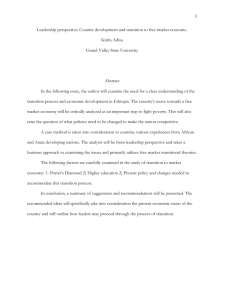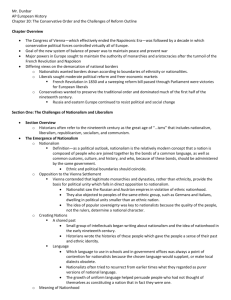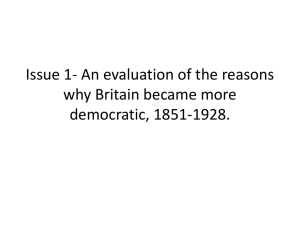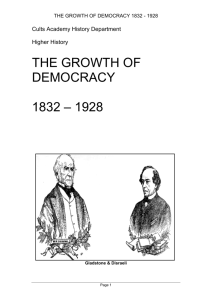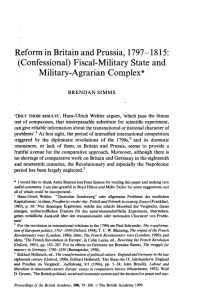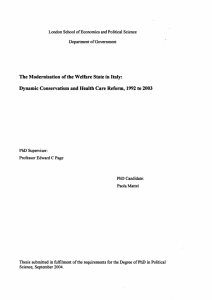reasons for democracy essay plan
advertisement
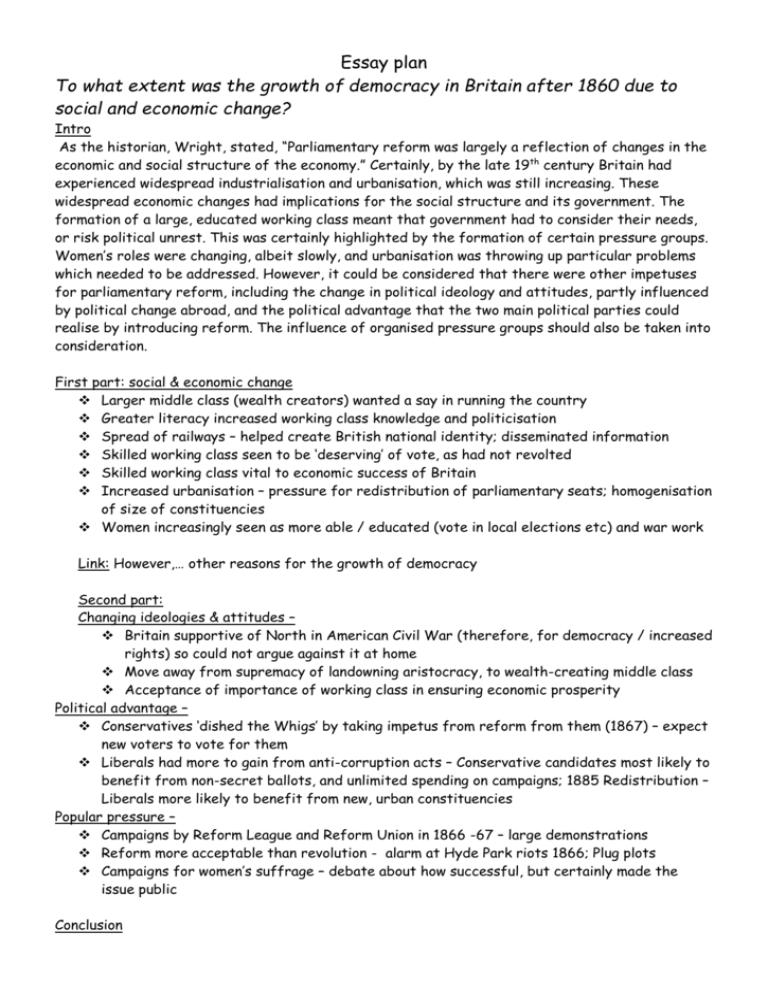
Essay plan To what extent was the growth of democracy in Britain after 1860 due to social and economic change? Intro As the historian, Wright, stated, “Parliamentary reform was largely a reflection of changes in the economic and social structure of the economy.” Certainly, by the late 19th century Britain had experienced widespread industrialisation and urbanisation, which was still increasing. These widespread economic changes had implications for the social structure and its government. The formation of a large, educated working class meant that government had to consider their needs, or risk political unrest. This was certainly highlighted by the formation of certain pressure groups. Women’s roles were changing, albeit slowly, and urbanisation was throwing up particular problems which needed to be addressed. However, it could be considered that there were other impetuses for parliamentary reform, including the change in political ideology and attitudes, partly influenced by political change abroad, and the political advantage that the two main political parties could realise by introducing reform. The influence of organised pressure groups should also be taken into consideration. First part: social & economic change Larger middle class (wealth creators) wanted a say in running the country Greater literacy increased working class knowledge and politicisation Spread of railways – helped create British national identity; disseminated information Skilled working class seen to be ‘deserving’ of vote, as had not revolted Skilled working class vital to economic success of Britain Increased urbanisation – pressure for redistribution of parliamentary seats; homogenisation of size of constituencies Women increasingly seen as more able / educated (vote in local elections etc) and war work Link: However,… other reasons for the growth of democracy Second part: Changing ideologies & attitudes – Britain supportive of North in American Civil War (therefore, for democracy / increased rights) so could not argue against it at home Move away from supremacy of landowning aristocracy, to wealth-creating middle class Acceptance of importance of working class in ensuring economic prosperity Political advantage – Conservatives ‘dished the Whigs’ by taking impetus from reform from them (1867) – expect new voters to vote for them Liberals had more to gain from anti-corruption acts – Conservative candidates most likely to benefit from non-secret ballots, and unlimited spending on campaigns; 1885 Redistribution – Liberals more likely to benefit from new, urban constituencies Popular pressure – Campaigns by Reform League and Reform Union in 1866 -67 – large demonstrations Reform more acceptable than revolution - alarm at Hyde Park riots 1866; Plug plots Campaigns for women’s suffrage – debate about how successful, but certainly made the issue public Conclusion







